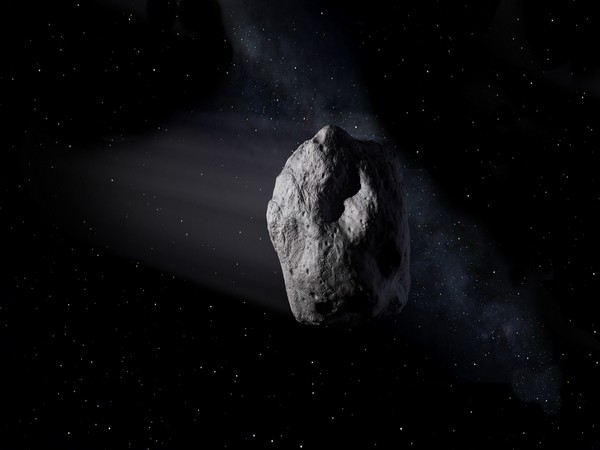Science News Roundup: Asteroid's path altered in NASA's first test of planetary defense system; Astra Space to supply engines for Maxar satellites and more
successfully launched a Soyuz-2.1b medium-class launch vehicle with space navigation GLONASS-K system," the agency cited the ministry as saying. On New Zealand farm, scientists reduce cow burps to save the world More than a dozen calves wait at a research farm in New Zealand to be fed Kowbucha, a punnily named probiotic that studies show reduces burps -- or methane emissions.

Following is a summary of current science news briefs.
Astra Space to supply engines for Maxar satellites
Rocket builder Astra Space Inc signed an agreement with Maxar to supply electric propulsion engines for the Earth observation firm’s future low-earth orbiting satellites, Astra announced on Tuesday. The value of the agreement was not disclosed. Astra declined to say how many satellites were involved in the agreement.
Russia successfully launches navigation satellite - Interfax
Russia launched its Soyuz-2.1b rocket carrying the GLONASS-K navigation system on Monday from a northern cosmodrome, the Interfax news agency reported, citing the defence ministry. "Combat crews of the Space Forces .... successfully launched a Soyuz-2.1b medium-class launch vehicle with space navigation GLONASS-K system," the agency cited the ministry as saying.
On New Zealand farm, scientists reduce cow burps to save the world
More than a dozen calves wait at a research farm in New Zealand to be fed Kowbucha, a punnily named probiotic that studies show reduces burps -- or methane emissions. The Kowbucha powder is blended into a milk-like drink fed to the calves at the Massey University farm in Palmerston North.
United Launch Alliance's debut Vulcan mission slips to 2023 -CEO
United Launch Alliance has pushed the debut launch of its new Vulcan rocket to early 2023 at the request of one of its customers, the company's chief executive said, further delaying a benchmark mission crucial to the Boeing-Lockheed joint venture's launch business. Vulcan, a roughly 200 foot-tall rocket in the final stages of development, will be the centerpiece to ULA's launch business. It also will be a workhorse for U.S. Pentagon missions to space starting late next year as the rocket's predecessor nears retirement over its use of Russian-made engines.
Asteroid's path altered in NASA's first test of planetary defense system
The spacecraft that NASA deliberately crashed into an asteroid last month succeeded in nudging the rocky moonlet out of its natural orbit - the first time humanity has altered the motion of a celestial body - NASA officials announced on Tuesday. The $330 million proof-of-concept mission, which was seven years in development, also marked the world's first test of a planetary defense system designed to prevent a potential doomsday meteorite collision with Earth.
'Although not alive, I can still create art,' robot Ai-Da tells UK lawmakers
A "robot artist" called Ai-Da told British lawmakers on Tuesday that although it was an artificial creation, it was still capable of producing art, as it spoke at a parliamentary inquiry into how new technologies will affect the creative industries. Described as "the world's first ultra-realistic AI humanoid robot artist", it appeared in one of parliament's ornate wood-panelled rooms, wearing a short black-haired wig and denim dungarees.
(With inputs from agencies.)
ALSO READ
England Dominates Second Test Against New Zealand
Joe Root's Historic Century Boosts England's Commanding Lead Against New Zealand
England Dominates New Zealand in Commanding Test Series Victory
England Clinch Series with Record Victory Over New Zealand
England's Commanding Victory: A Series Triumph in New Zealand










